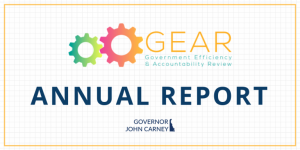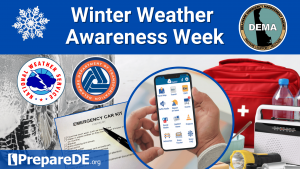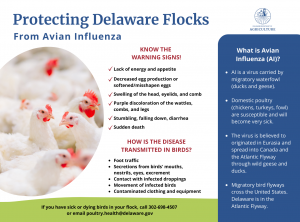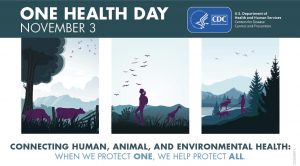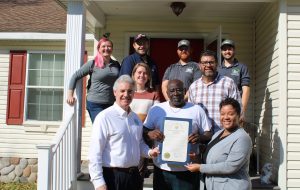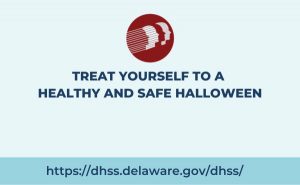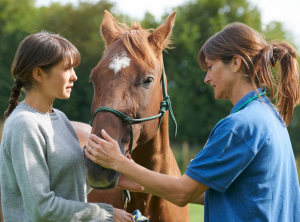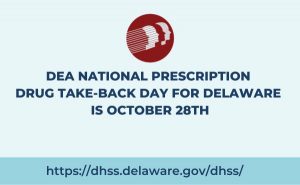Prevent Injury and Disability from Falls: Fall Prevention Awareness Week is September 18-22, 2023 – State of Delaware News
[ad_1]
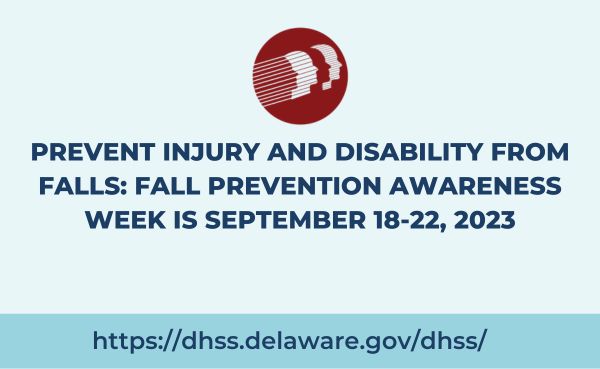
Broken bones, head injuries and temporary or permanent disabilities can result from falls. The Delaware Coalition for Injury Prevention’s Falls Prevention Team encourages Delawareans to prevent such mishaps.
Governor John Carney and Lieutenant Governor Bethany Hall-Long proclaimed September 18-22, 2023 as Falls Prevention Awareness Week in accordance with the nationally recognized observance.
“It’s important that we look out for our neighbors and create communities that are safe for Delawareans of all ages,” said Governor Carney. “We can take steps to reduce the risk of falling in public spaces by repairing sidewalks, installing curb cuts and ramp access, and removing hazards from walkways. I want to thank DHSS and the Delaware Coalition for Injury Prevention for their efforts to keep our seniors safe.”
Falls occur among persons of all ages, though young children and seniors are most at risk for fall-related traumatic brain injuries in the United States. Traumatic brain injuries lead to major life changes for individuals and their families. In the U.S., falls are the leading cause of trauma-related hospitalizations among adults aged 65 and older, according to the Centers for Disease Control and Prevention (CDC). Falls are the most common cause of traumatic brain injuries for older adults and young children and cause over 95% of hip fractures in the United States.
In Delaware in 2022, there were 2,954 falls among individuals aged 65 and older, and 568 of them resulted in a head injury, according to the Division of Public Health.
“A fall can change the course of someone’s life, impacting mobility, functionality and independence,” said Lt. Governor Hall-Long, PhD, RN. “But no matter your age, there are steps you can take to stay safe and healthy. As a nurse, I know that balance classes are a great resource to increase coordination, balance, strength and flexibility. Thank you to Delaware Coalition for Injury Prevention’s Falls Prevention Team for shedding light on this important topic and sharing the steps we all can take – businesses, organizations, churches and schools – to make our communities and ourselves safe.”
A Matter of Balance© classes are held in communities throughout the state. Call Volunteer Delaware 50+ at 302-515-3020 or Bayhealth at 302-744-7135 for a schedule. ChristianaCare offers BingoCize, an evidence-based fall prevention program integrating Bingo and exercise, and the ThinkFirst to Prevent Falls© program, which addresses home modifications, medications, balance, healthy eating and other strategies to prevent falls. These classes are available in person and virtually at no cost. To schedule these programs and obtain more information, contact injuryprevention@christianacare.org.
On September 21 from 9:00 a.m. to 12:00 p.m., the Falls Prevention Team will join the University of Delaware Physical Therapy Department at the Mid-County Center Health Fair. They will conduct fall prevention screenings and wheelchair, cane, and rolling walker checks, and share falls prevention awareness resources. The center is located at First Regiment Rd., Sherwood Park II, Wilmington Delaware, 19808. For more information about the health fair, visit https://midcountyseniorcenter.org/ or write to info@midcountyseniorcenter.org.
Adults of all ages should visit their health care provider annually to review medications and physical activity levels, and to get a falls risk assessment. Adults, especially seniors and those using wheelchairs and walkers, should have annual vision and hearing exams to reduce their risk of falling. If canes and walkers are currently used, the provider can ensure their proper fit.
Adopting healthy behaviors is especially important. Eating nutritious foods and beverages, staying hydrated, exercising regularly and getting appropriate sleep all contribute to maintaining a healthy body and reducing falls risk. In addition, wear shoes in good condition with proper fit, tread and support to aid in ambulation. Individuals at risk of falls should wear shoes that fit around their feet with no open backs to avoid falling out of them.
At home, keep homes, yards, and public areas clutter-free to reduce tripping hazards. Install grab bars in key areas such as stairs and bathrooms. Use motion-activated night lights and keep walkways and parking areas well lit. Do not let pets get underfoot; teach them basic commands like “sit” and “stay.”
Businesses, organizations, churches and schools can reduce falls with these steps:
- Maintain walkways to ensure a smooth surface without crumbling or splintered surfaces. Remove snow, ice, rain, wet moss, leaves, oil, and other slippery conditions.
- Have walkways include curb cuts, ramps, and slopes that meet state and local safety codes and the guidelines provided by the Americans with Disabilities Act. Curb cuts, tactile surface pavers, slopes, contrasting colors, and other universal design elements benefit everyone, especially individuals with disabilities who use walkers and wheelchairs, those pushing strollers, and those who cannot see well or easily lift their feet onto the curb.
-
- Provide designated parking for people with mobility challenges.
- Install handrails, ramps, and automatic doors and keep them free of hazards.
- Use entrance mats with flat and secured edges that do not curl up. Absorbent floor mats catch rain and snow at entrances and spilled drinks at food establishments.
To learn more about falls and falls prevention, refer to the CDC’s Stopping Elderly Accidents, Deaths and Injuries (STEADI) rogram at https://www.cdc.gov/steadi/index.html and the National Council on Aging at https://www.ncoa.org/page/falls-prevention-awareness-week-toolkit.
For falls data, visit the Delaware Trauma System Registry at https://dhss.delaware.gov/dph/ems/trauma.html.
Related Topics: Delaware Department of Health and Social Services, Delaware Division of Public Health, falls prevention awareness week

Keep up to date by receiving a daily digest email, around noon, of current news release posts from state agencies on news.delaware.gov.
Here you can subscribe to future news updates.

Broken bones, head injuries and temporary or permanent disabilities can result from falls. The Delaware Coalition for Injury Prevention’s Falls Prevention Team encourages Delawareans to prevent such mishaps.
Governor John Carney and Lieutenant Governor Bethany Hall-Long proclaimed September 18-22, 2023 as Falls Prevention Awareness Week in accordance with the nationally recognized observance.
“It’s important that we look out for our neighbors and create communities that are safe for Delawareans of all ages,” said Governor Carney. “We can take steps to reduce the risk of falling in public spaces by repairing sidewalks, installing curb cuts and ramp access, and removing hazards from walkways. I want to thank DHSS and the Delaware Coalition for Injury Prevention for their efforts to keep our seniors safe.”
Falls occur among persons of all ages, though young children and seniors are most at risk for fall-related traumatic brain injuries in the United States. Traumatic brain injuries lead to major life changes for individuals and their families. In the U.S., falls are the leading cause of trauma-related hospitalizations among adults aged 65 and older, according to the Centers for Disease Control and Prevention (CDC). Falls are the most common cause of traumatic brain injuries for older adults and young children and cause over 95% of hip fractures in the United States.
In Delaware in 2022, there were 2,954 falls among individuals aged 65 and older, and 568 of them resulted in a head injury, according to the Division of Public Health.
“A fall can change the course of someone’s life, impacting mobility, functionality and independence,” said Lt. Governor Hall-Long, PhD, RN. “But no matter your age, there are steps you can take to stay safe and healthy. As a nurse, I know that balance classes are a great resource to increase coordination, balance, strength and flexibility. Thank you to Delaware Coalition for Injury Prevention’s Falls Prevention Team for shedding light on this important topic and sharing the steps we all can take – businesses, organizations, churches and schools – to make our communities and ourselves safe.”
A Matter of Balance© classes are held in communities throughout the state. Call Volunteer Delaware 50+ at 302-515-3020 or Bayhealth at 302-744-7135 for a schedule. ChristianaCare offers BingoCize, an evidence-based fall prevention program integrating Bingo and exercise, and the ThinkFirst to Prevent Falls© program, which addresses home modifications, medications, balance, healthy eating and other strategies to prevent falls. These classes are available in person and virtually at no cost. To schedule these programs and obtain more information, contact injuryprevention@christianacare.org.
On September 21 from 9:00 a.m. to 12:00 p.m., the Falls Prevention Team will join the University of Delaware Physical Therapy Department at the Mid-County Center Health Fair. They will conduct fall prevention screenings and wheelchair, cane, and rolling walker checks, and share falls prevention awareness resources. The center is located at First Regiment Rd., Sherwood Park II, Wilmington Delaware, 19808. For more information about the health fair, visit https://midcountyseniorcenter.org/ or write to info@midcountyseniorcenter.org.
Adults of all ages should visit their health care provider annually to review medications and physical activity levels, and to get a falls risk assessment. Adults, especially seniors and those using wheelchairs and walkers, should have annual vision and hearing exams to reduce their risk of falling. If canes and walkers are currently used, the provider can ensure their proper fit.
Adopting healthy behaviors is especially important. Eating nutritious foods and beverages, staying hydrated, exercising regularly and getting appropriate sleep all contribute to maintaining a healthy body and reducing falls risk. In addition, wear shoes in good condition with proper fit, tread and support to aid in ambulation. Individuals at risk of falls should wear shoes that fit around their feet with no open backs to avoid falling out of them.
At home, keep homes, yards, and public areas clutter-free to reduce tripping hazards. Install grab bars in key areas such as stairs and bathrooms. Use motion-activated night lights and keep walkways and parking areas well lit. Do not let pets get underfoot; teach them basic commands like “sit” and “stay.”
Businesses, organizations, churches and schools can reduce falls with these steps:
- Maintain walkways to ensure a smooth surface without crumbling or splintered surfaces. Remove snow, ice, rain, wet moss, leaves, oil, and other slippery conditions.
- Have walkways include curb cuts, ramps, and slopes that meet state and local safety codes and the guidelines provided by the Americans with Disabilities Act. Curb cuts, tactile surface pavers, slopes, contrasting colors, and other universal design elements benefit everyone, especially individuals with disabilities who use walkers and wheelchairs, those pushing strollers, and those who cannot see well or easily lift their feet onto the curb.
-
- Provide designated parking for people with mobility challenges.
- Install handrails, ramps, and automatic doors and keep them free of hazards.
- Use entrance mats with flat and secured edges that do not curl up. Absorbent floor mats catch rain and snow at entrances and spilled drinks at food establishments.
To learn more about falls and falls prevention, refer to the CDC’s Stopping Elderly Accidents, Deaths and Injuries (STEADI) rogram at https://www.cdc.gov/steadi/index.html and the National Council on Aging at https://www.ncoa.org/page/falls-prevention-awareness-week-toolkit.
For falls data, visit the Delaware Trauma System Registry at https://dhss.delaware.gov/dph/ems/trauma.html.
Related Topics: Delaware Department of Health and Social Services, Delaware Division of Public Health, falls prevention awareness week

Keep up to date by receiving a daily digest email, around noon, of current news release posts from state agencies on news.delaware.gov.
Here you can subscribe to future news updates.
[ad_2]

















